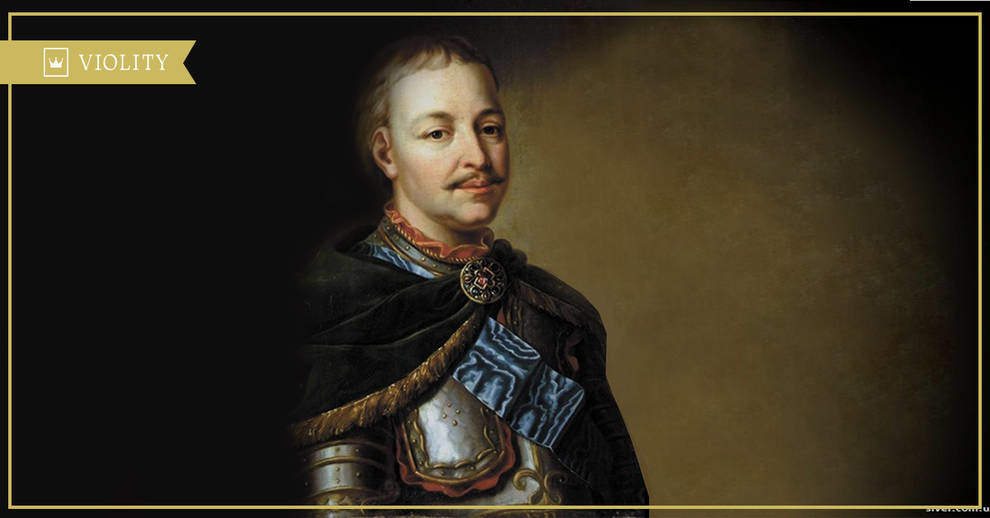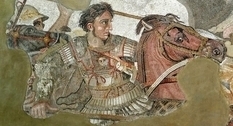
Ivan Mazepa - Hetman of the Left Bank
Thanks to the influence of Vasily Golitsyn, the favorite of the Russian princess Sophia, on August 4, 1687, at the Cossack district in the village of Kolomak (now Kharkov region), Ivan Mazepa was elected the new hetman of the Left Bank. Here, Kolomak articles were also signed, which declaratively confirmed Cossack rights and privileges, but limited the political rights of the hetman and his government.
In his foreign policy, Mazepa continued the line of Samoilovich, aimed at ensuring the maximum possible autonomy of Ukraine and avoiding direct confrontation with Muscovy. In domestic politics, the hetman relied on the Cossack foreman, a number of laws separated the Cossacks as a class.
He also carried out a reform of the judiciary and the tax system, established the maximum corvee two days a week, allowed the peasants to distill their own needs, organized and financed the construction of churches throughout the Hetman region, was engaged in the Kiev Academy as a philanthropist of science and art.
However, Ivan Mazepa did not manage to find a common language with Zaporozhye, where dissatisfied with the pro-Moscow course of the hetman flocked. In 1692, Petrik Ivanenko suppressed the uprising, who, with the help of an alliance with the Crimean Tatars, tried to annex the Right-Bank Ukraine, Slobozhanshchina to the Hetman and separate them from Russia.

In 1689 and 1695, Mazepa took part in the campaigns of Peter I to conquer the Crimea and the Sea of Azov, which, despite the expectations of the hetman, did not bring Ukraine any favorable results. In the spring of 1704, by order of the tsar, Ivan Mazepa opposed the Polish king Stanislav Leshchinsky, captured Kiev region and Volyn.
After the conflict with Colonel Semyon Paliy, who had been taking part in the Ukrainian-Polish war on the Right Bank since 1700, and whose ambitious intentions seemed to Mazepa as a threat to his own hetman’s position, he unreasonably arrested him and annexed right-bank regiments to the Hetman.
The hetman’s decision on an alliance with Charles XII did not find unequivocal support among the Cossack foreman, for whom Mazepa’s anti-Russian speech was completely unexpected. It was also condemned by the Orthodox clergy - in all the churches, even those built by Mazep, his name was anathematized, and his act, at the suggestion of Peter I, was interpreted as subordinate to personal gain.
After the defeat of the Swedes in July 1709 in the Battle of Poltava, Mazepa’s plan to establish the Hetman region as an independent state failed completely.
In his foreign policy, Mazepa continued the line of Samoilovich, aimed at ensuring the maximum possible autonomy of Ukraine and avoiding direct confrontation with Muscovy. In domestic politics, the hetman relied on the Cossack foreman, a number of laws separated the Cossacks as a class.
He also carried out a reform of the judiciary and the tax system, established the maximum corvee two days a week, allowed the peasants to distill their own needs, organized and financed the construction of churches throughout the Hetman region, was engaged in the Kiev Academy as a philanthropist of science and art.
However, Ivan Mazepa did not manage to find a common language with Zaporozhye, where dissatisfied with the pro-Moscow course of the hetman flocked. In 1692, Petrik Ivanenko suppressed the uprising, who, with the help of an alliance with the Crimean Tatars, tried to annex the Right-Bank Ukraine, Slobozhanshchina to the Hetman and separate them from Russia.

Photo © jnsm.com.ua
In 1689 and 1695, Mazepa took part in the campaigns of Peter I to conquer the Crimea and the Sea of Azov, which, despite the expectations of the hetman, did not bring Ukraine any favorable results. In the spring of 1704, by order of the tsar, Ivan Mazepa opposed the Polish king Stanislav Leshchinsky, captured Kiev region and Volyn.
After the conflict with Colonel Semyon Paliy, who had been taking part in the Ukrainian-Polish war on the Right Bank since 1700, and whose ambitious intentions seemed to Mazepa as a threat to his own hetman’s position, he unreasonably arrested him and annexed right-bank regiments to the Hetman.
The hetman’s decision on an alliance with Charles XII did not find unequivocal support among the Cossack foreman, for whom Mazepa’s anti-Russian speech was completely unexpected. It was also condemned by the Orthodox clergy - in all the churches, even those built by Mazep, his name was anathematized, and his act, at the suggestion of Peter I, was interpreted as subordinate to personal gain.
After the defeat of the Swedes in July 1709 in the Battle of Poltava, Mazepa’s plan to establish the Hetman region as an independent state failed completely.


